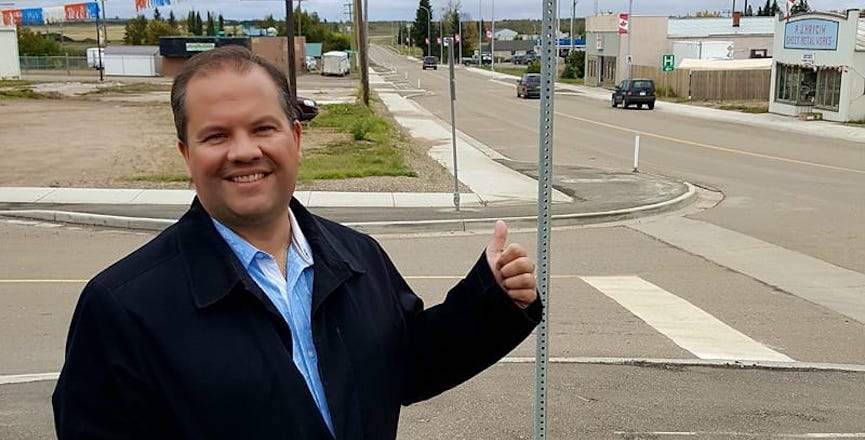“Soon, we will find out if breaking the law is illegal.”
The line is Stephen Colbert’s and, no, he wasn’t talking about Alberta.
The well-known American comedian and TV personality, of course, was referring to U.S. President Donald Trump’s impeachment trial in the U.S. Senate, in which oral arguments began yesterday.
Still, this observation could almost as easily be made about Alberta as America, especially now that the Royal Canadian Mounted Police (RCMP) investigation into the campaign shenanigans that ultimately led to the election of Jason Kenney as leader of the United Conservative Party seems to have moved into a new phase.
According to a January 22 report by the CBC, at any rate, the Mounties’ investigation into the so-called “kamikaze” campaign of candidate Jeff Callaway during the 2017 leadership race has now expanded into the area of financial fraud, specifically, whether donors to the campaign were led to believe it was actually legitimate.
The CBC reported several donors to Callaway’s campaign have been visited by RCMP investigators who asked about their contributions, requested copies of receipts, and queried them as to whether they thought the campaign was the real McCoy.
As the CBC report scrupulously noted, both Callaway and Kenney deny their campaigns were in cahoots, working together to sink Kenney’s chief competitor, former Wildrose party leader Brian Jean, without the eventual winner having to get his paws dirty delivering the smear.
“But CBC News has obtained emails and documents that outline the collaboration, including a resignation speech emailed to Callaway’s team from Kenney’s then-deputy chief of staff and current director of issues management, Matt Wolf,” wrote CBC Calgary reporter Drew Anderson, pretty definitively.
“The allegations against the campaign appear to fit the definition of fraud,” the CBC report also noted, quoting a law professor.
Whatever the Mounties conclude, of course, it remains to be seen whether Crown prosecutors led by that special prosecutor from Ontario decide whether anyone can be convicted.
And even if charges are laid, it seems unlikely they will come anywhere close to the folks who called the shots, whomever they may be, in the reputed scheme.
If anyone ends up in legal hot water, it’s said here it’s most likely to turn out to be some small fry, like the hapless Michael Sona, the low-level Conservative Party of Canada campaigner who was sentenced to jail in 2014 for his role in the robocall scandal in which voters identified as Liberal supporters were directed by unknown callers to non-existent polling stations during the 2011 federal election.
That election was won by the federal Conservative party led by Stephen Harper, whom Kenney served as a senior cabinet minister. Sona, a minor figure in the Conservative campaign in Guelph, Ontario, was said by the judge who convicted him of offences under the Canada Elections Act to have been unlikely to have acted alone.
Nevertheless, he was the only person ever convicted in the robocall affair.
More recently, the “kamikaze” campaign was also being investigated by Alberta election commissioner Lorne Gibson for various violations of provincial electoral financing laws.
After Gibson’s staff had levied fines of more than $176,000 against 11 people and two corporations, the office of the election commissioner was closed down by the Kenney government last November.
Kenney’s “fair deal panel,” by the way, may also soon recommend the replacement of the RCMP by a provincial police force.
Meanwhile, though, Elections Alberta says it’s still looking into the matter. As the CBC pointed out yesterday, Chief electoral officer Glen Resler, who is now in charge of that investigation, will have his employment reviewed by the Kenney government next spring.
So, soon perhaps, like our American cousins we will also find out if breaking the law is illegal in Alberta.
Stephen Harper to address crowd in Edmonton; media can get lost
Speaking of Stephen Harper, as we just were, readers will be interested to learn that the former Conservative prime minister will be holding forth for an hour in Edmonton a week from today at the Alberta’s Industrial Heartland Association’s annual stakeholder event.
Do not, however, expect to learn very much about what Harper has to say on January 30, unless one of the 1,100 expected delegates manages to discreetly turn on the digital recorder in his or her smartphone during the ex-PM’s bloviations.
Media have been warmly invited to the shindig, but not, alas, to the remarks of the man the AIHA still refers to as “Prime Minister Harper.”
The invite to some of the usual suspects in mainstream media — although not, it would appear from the copy forwarded to me, anyone from the CBC — had this to say in red, underlined, all-caps: “IMPORTANT — MEDIA IS NOT PERMITTED IN THE ROOM DURING PRIME MINISTER HARPER’S PRESENTATION. YOU ARE REQUIRED TO LEAVE THE BALLROOM FROM 3:00 PM — 4:00 PM. NO EXCEPTIONS.”
David Climenhaga, author of the Alberta Diary blog, is a journalist, author, journalism teacher, poet and trade union communicator who has worked in senior writing and editing positions at The Globe and Mail and the Calgary Herald. This post also appears on David Climenhaga’s blog, AlbertaPolitics.ca.
Image: Jeff Callaway/Facebook



